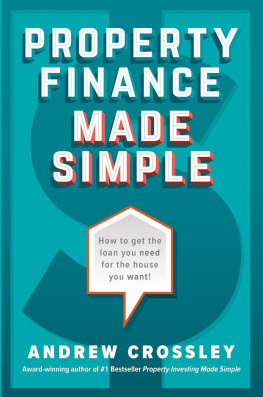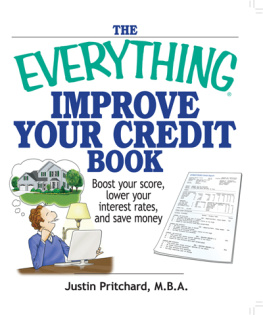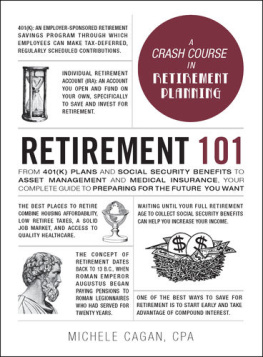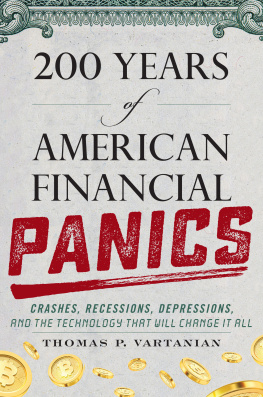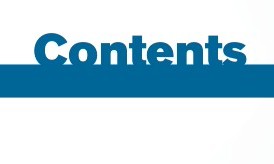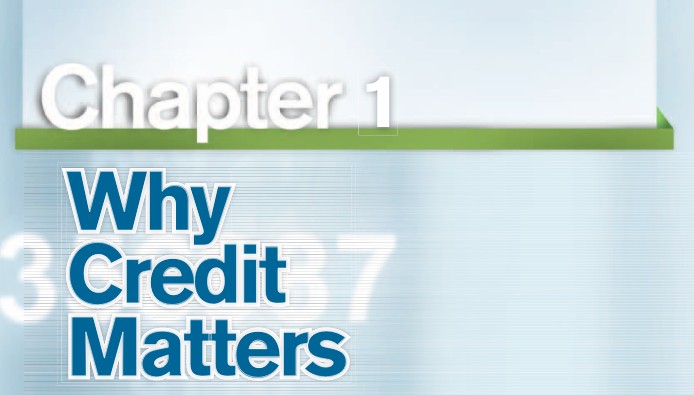Published in 2013 by The Rosen Publishing Group, Inc.
29 East 21st Street, New York, NY 10010
Copyright 2013 by The Rosen Publishing Group, Inc.
First Edition
All rights reserved. No part of this book may be reproduced in any form without permission in writing from the publisher, except by a reviewer.
Library of Congress Cataloging-in-Publication Data
Prentzas, G.S.
How interest rates, credit ratings, and lending affect you/G.S. Prentzas. 1st ed.
p. cm.(Your economic future)
Includes bibliographical references and index.
ISBN 978-1-4488-8346-2 (library binding)
1. Credit ratings. 2. Interest rates. 3. Loans, Personal. I. Title.
HG3751.5.P74 2013
332.7'43dc23
2012014431
Manufactured in the United States of America
CPSIA Compliance Information: Batch #W13YA: For further information, contact Rosen Publishing, New York, New York, at 1-800-237-9932.
Chapter 1
Chapter 2
Chapter 3
Chapter 4
Chapter 5
Chapter 6
This couple discusses the terms of a mortgage with a bank's loan officer. Mortgages and other types of credit enable people to make large purchases.
INTRODUCTION
T hink about an imaginary couple named John and Susan Smith. They find the perfect home for sale for their family. The house is much larger than their current apartment. The houses owners are moving to another state, so they are selling the house at a great price. The children are excited because theyll finally get their own bedrooms. Plus, lots of their friends from school live in the neighborhood.
Like most people, John and Susan dont have enough money to pay cash for such an expensive purchase. To buy the house, they must get a mortgage. A mortgage is a long-term loan used to pay for a house. A bank or other lender gives the borrower money to help pay the cost of the house. The home buyer agrees to repay the loan over time, usually thirty years, with a payment due each month. The loan repayment includes interest, which is a fee charged for borrowing money.
The Smiths go to the bank where they have checking and savings accounts. They fill out a mortgage application. The application asks for information about their jobs, incomes, and savings. It also asks about their debts, such as car payments and credit card balances. The bank requests a credit score for both John and Susan.
Companies called credit reporting agencies keep records of everyones credit history. Lenders send the agencies information about their customers accounts and payment histories. The agencies use this information to create a credit history and to assign a credit score for everyone. Lenders use these scores as a factor when deciding whether to approve loans.
Within a few days, John and Susan Smith hear from the bank. Theres a problem with their mortgage request. In the past, the Smiths experienced problems paying their bills. Soon after college, John had been in a car accident and had borrowed money to pay his medical bills. Because his first job did not pay well, he did not have much money. He missed some of the loan payments. Susan had also made late payments over the years. Sometimes she paid off other bills instead of sending money to pay off her student loan.
The Smiths also have a high credit card balance. Susan started a new job recently. She used a credit card to buy a new wardrobe. John used a credit card to buy an expensive plasma TV before football season began. They were still paying off the credit card company for these purchases. They had also taken out a five-year loan last year to buy a new car.
The banks loan officer had good news and bad news for the Smiths. Their credit scores were not very good because of their past payment history and current debts. If the Smiths scores had been lower, the bank would not have offered them a loan. The bank was willing to approve a mortgage. However, the Smiths did not qualify for a mortgage with the banks best interest rate. The bank gave that rate only to customers with excellent credit scores. The loan officer offered the Smiths a mortgage with a higher interest rate. Because of this mortgages higher interest rate, the amount the Smiths would have to repay the bank would be much higher.
The Smiths now faced a dilemma. Should they buy the house, even though the mortgage would cost them more than they expected and perhaps make their finances more difficult in the future, or should they delay their dream of owning a home?
A t the time of this writing, the average price of a new car was more than $28,000, according to research firm J. D. Power and Associates. Imagine having to save up enough money to buy a car. Even if you have plenty of money, you may not want to use a large portion of your savings to make such a big purchase. Thats where credit comes in. Credit allows you to buy things in the present and pay for them over time.
The word credit comes from credo , the Latin word for I believe. Credit is a promise to repay someone who has lent you money. It is based on a lenders belief that you will fulfill your promise to pay back the loan. To get credit, you must convince a lender that you are trustworthy.
Credit does not increase your income. Using it creates debt. Credit and debt are opposites. Credit is something one person gives to another. Debt is something owed. Usually the something given and owed is money. For example, a car loan is credit for the money a lender gives a person to buy a car.
The person who gives credit is called a creditor. The person who receives credit is called a borrower or debtor.
Credit Cards and Loans
Credit is an important part of modern economies. In the United States, for example, consumer spending makes up about two-thirds of the nations economic activity. Everything from sales of houses to groceries to payments for the services of plumbers and personal trainers makes up consumer spending.
A significant portion of consumer spending is based on credit. Credit cards and loans are the two major types of credit. Many people pay for goods and services by using credit cards for everyday purchases and taking out loans to pay for very expensive items.
The use of credit helps keep the economy working. It makes smaller sales easier and larger sales possible. Without credit, people would buy fewer goods and services. If businesses sold fewer goods and provided fewer services, they would employ fewer workers. Without credit, business transactions would slow down. National and local economies would shrink.
Credit cards offer consumers the convenience of making purchases without having to pay for them with cash. Credit card companies charge merchants a small fee for each credit card transaction. Despite this cost, many merchants accept credit cards because they offer several benefits. Consumers spend more often when they can use a credit card. Using a credit card allows consumers to take advantage of sales and make unexpected or emergency purchases. Merchants want to provide their customers the convenience of noncash transactions. Accepting credit cards also makes banking easier for merchants, who dont have to deal with so much cash.




